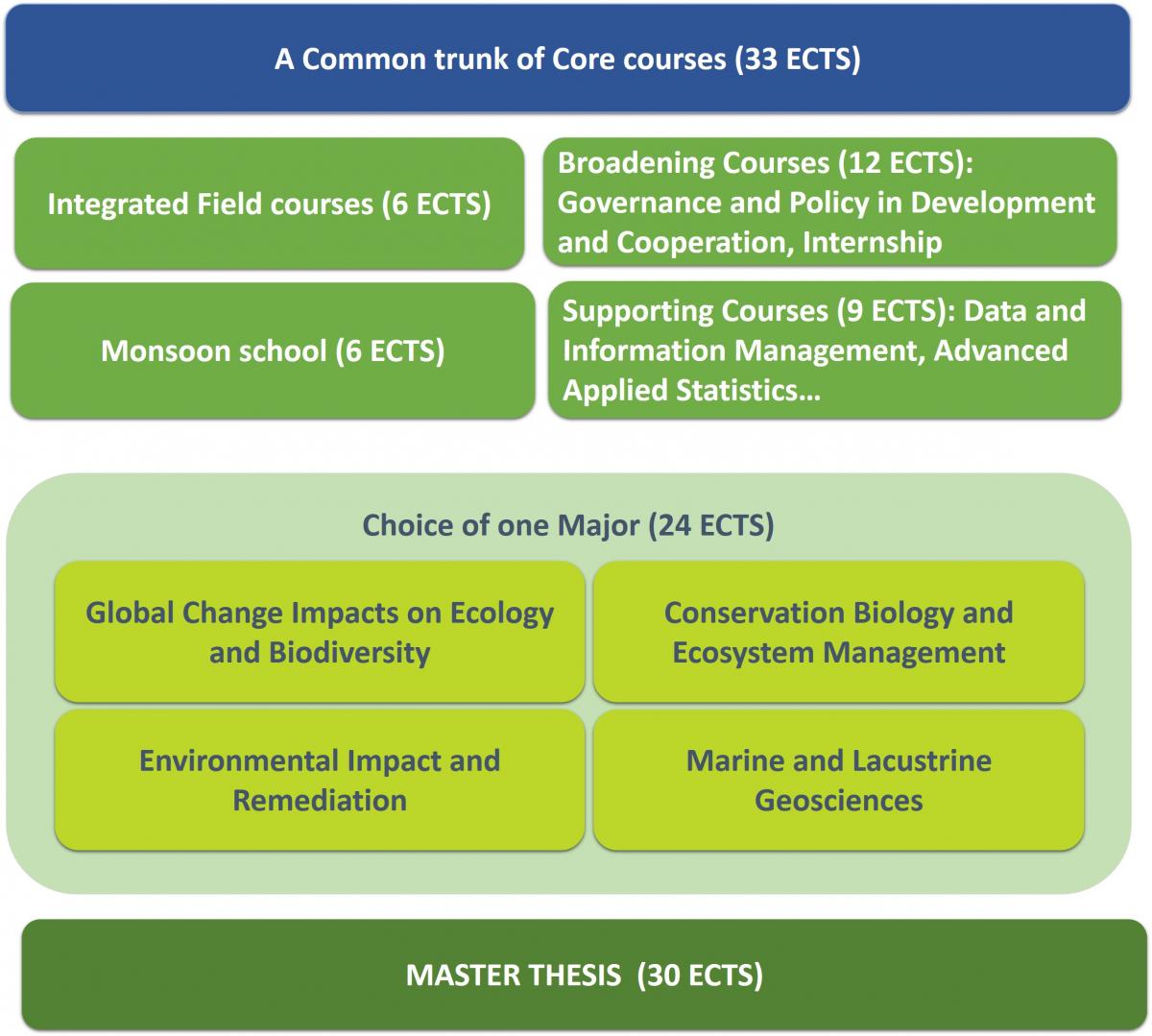Structure of the old study programme (before 2023-2024):

In general, the Oceans & Lakes programme puts strong emphasis on acquiring skills, both in marine and lacustrine research and management. It requires full-time attendance and active participation in lectures and practical exercises, visits to marine research centers, field trips and excursions.
The programme with the old structure consists of 5 parts:
- Core courses (for 45 ECTS) with compulsory courses covering disciplines which are considered as essential knowledge for a marine and lacustrine scientist, including field courses and a "Monsoon School".
- Broadening courses (12 ECTS)
- Supporting courses (9 ECTS)
- One major (24 ECTS) to choose out of 4 specialisations:
- Global Change Impacts on Ecology and Biodiversity
- Conservation Biology and Ecosystem Management
- Environmental Impact and Remediation
- Marine and Lacustrine Geosciences
- The master thesis stands for 30 ECTS and consists of an individual research project related to ongoing research in one of the associated research groups.
An internship period of 3-4 weeks allows the student to get professional experience in marine and lacustrine related fields. In addition to classes, fieldwork is an essential part of the programme.
In order to prepare the students to function well in an international professional context, all lecturers and course materials are in English. International students enrolling in the programme should have a good English knowledge. For language requirements see more info.
You can find a guide on how to compose your study programme here:
-for the old programme (enrolments before 2023-2024)



